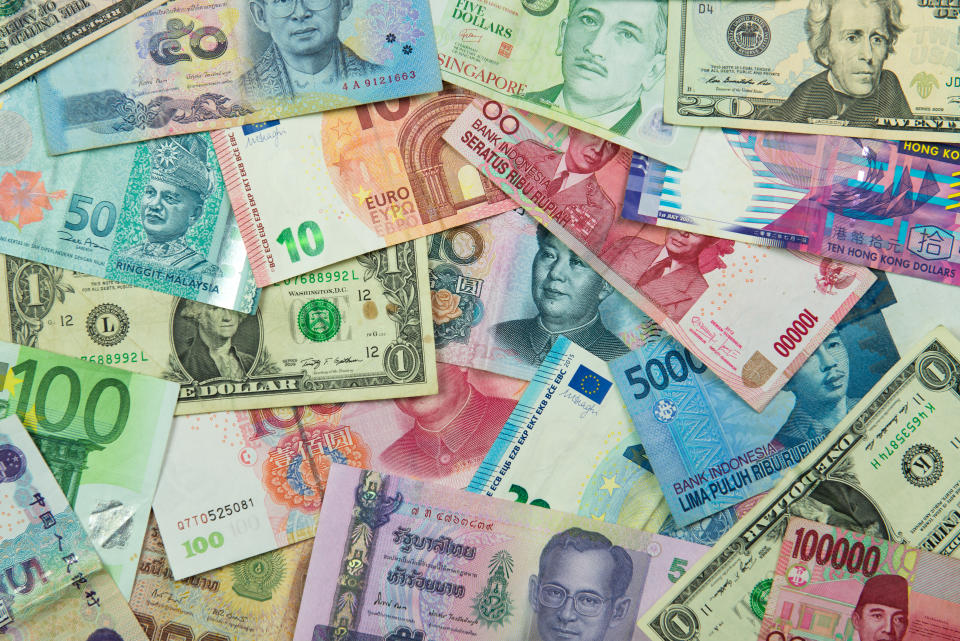The US$11 trillion emerging-markets rally is backed for 2020

By Yumi Teso, Marcus Wong and Selcuk Gokoluk
(Bloomberg) -- Emerging markets are about to embark on another year of wealth creation after adding US$11 trillion to investor portfolios in the past decade.
Developing-nation assets will outperform their developed peers, with Asia having the best prospects, according to Bloomberg’s survey of 57 global investors, strategists and traders on their outlook for next year. Total wealth in emerging-market stocks and bonds now exceeds US$25 trillion, bigger than the economies of the U.S. and Germany combined.
The U.S.-China trade dispute that dictated market moves throughout 2019 will remain the biggest driving force, while China’s growth outlook eclipsed Federal Reserve monetary policy to be the second-most important factor. After a wave of global easing led to more than US$11 trillion in negative-yielding debt, the haven pile will be less of a focus as some central banks enter holding patterns from easier monetary policies.
All emerging-market assets -- currencies, stocks and bonds -- are making a comeback this year after posting their largest losses in three years in 2018 as the Fed led global central banks in cutting benchmark rates to support flagging growth. Russia’s ruble, the best-performing emerging currency so far this year, overtook the Brazilian real to become the top pick in 2020, while Indonesia was the most favoured for both bonds and stocks.
“I’m still quite bullish on emerging markets heading into 2020,” said Takeshi Yokouchi, a Tokyo-based senior fund manager at Sumitomo Mitsui DS Asset Management Co., which oversees the equivalent of $160 billion in assets. “Underlying supporting factors for EM still remain, with very low rates globally, and that will encourage investors to look at higher-yielding assets.”
The combined equity value of 26 nations listed by MSCI Inc. as developing markets has increased by US$6.6 trillion since the end of 2009, according to data compiled by Bloomberg. Meanwhile, Bloomberg Barclays bond indexes that cover a larger swathe of emerging economies show that local-currency bonds added US$2.9 trillion, U.S. dollar bonds added US$1.7 trillion and euro-denominated securities added US$237 billion during the period. So far this year, MSCI Inc.’s equities gauge rose 9.6% and its gauge of currencies is up 1.4%.
Below are the results of the Nov. 26-Dec. 5 survey.
Asia maintained its top position for currencies and stocks, while Latin America, which was plagued by a rise in political unrest this year, overtook Asia for bonds. Europe, the Middle East and Africa was the least favoured for bonds and equities, but moved one notch up for currencies.
High-yielding assets dominated the top spots across the regions, underscoring continued demand.
Respondents were also asked about the outlook for inflation, monetary policy and economic growth across 12 emerging markets:
Here is a list of the survey participants:
AllianceBernstein Holding LP | Manulife Investment Management |
Allianz Global Investors | Mediolanum International Funds |
Aberdeen Standard Investments | Mitsubishi UFJ Kokusai Asset Management Co. |
Amundi Asset Management | Mirabaud Asset Management Ltd. |
Asset Management One Co. | Mizuho Bank Ltd. |
Auerbach Grayson & Co. LLC | Mizuho Research Institute Ltd. |
Bank of Singapore Ltd. | Monex Europe Ltd. |
BCA Research Inc. | Neuberger Berman Group LLC |
BNP Paribas Asset Management | Nissay Asset Management Corp. |
Capitulum Asset Management GmbH | Nordea Bank AB |
Carmignac Gestion SA | Nomura Asset Management Co. |
CIMB Group Holdings Bhd. | Office Fukaya, Research & Consulting |
Cinkciarz | Oanda Corp. |
Deltec Asset Management LLC | Promeritum Investment Management LLP |
Deutsche Bank AG | Rabobank |
Eastspring Investments | RVX Asset Management |
Falanx Assynt | Robeco Institutional Asset Management Inc. |
Fidelity International | SBI Securities Co. |
Fujitomi Co. | Schroders Plc |
GAM UK | Societe Generale SA |
Global X Management Co. | Sumitomo Mitsui DS Asset Management Co. |
GW&K Investment Management LLC | Trafalgar Investimentos |
Is Investment Securities | TS Lombard |
ING Groep NV | Toronto-Dominion Bank |
Kasikornbank Pcl | Union Investment Privatfonds GmbH |
Krung Thai Bank Pcl | Vanguard Asset Management |
Lazard Asset Management | Wells Fargo & Co. |
Legal & General Investment Management | WisdomTree Investments Inc. |
Loomis, Sayles & Co. |
© 2019 Bloomberg L.P.

 Yahoo Finance
Yahoo Finance 